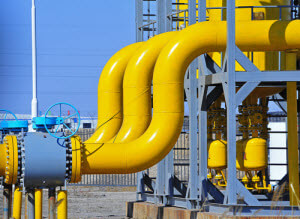Preventing Valve Problems in Your Pipeline
Valves in pipelines can keep materials flowing smoothly through any industrial system. However, all valves are susceptible to certain problems that can negatively affect system operations and cause severe and expensive damage. Fortunately, there are ways to prevent valve problems in your pipelines.
Here are a few common problems and what you need to do to prevent them from occurring in your pipelines.
Water Hammer
 Water hammer is a common problem with various types of systems and pipelines. It’s caused by pressure surges and shock waves that occur when the direction and flowrate of the liquid running through the system changes. Symptoms of water hammer include loud hammer noises and vibrations in the pipelines.
Water hammer is a common problem with various types of systems and pipelines. It’s caused by pressure surges and shock waves that occur when the direction and flowrate of the liquid running through the system changes. Symptoms of water hammer include loud hammer noises and vibrations in the pipelines.
This pipeline problem is quite common, but it can cause severe system damages if left untreated. Partially closing the system’s current valves can help to reduce the velocity and pressure of the liquid flowing through the system. However, a better solution is installing a faster-closing valve. This type of valve is designed close at a faster rate to prevent the pressure surges and shock waves that cause water hammer.
Reverse Flow
Reverse flow occurs when the liquid flowing through the system suddenly changes direction. It’s one of the top issues that most plants deal with and the cause of extreme pipeline and overall system damage.
 Like water hammer, reverse flow can be prevented by using a silent check valve, a spring-assisted in-line valve, and other types of faster-closing valves. These types of valves are designed to close as soon as the forward flow velocity of the liquid reaches zero to prevent reverse flow.
Like water hammer, reverse flow can be prevented by using a silent check valve, a spring-assisted in-line valve, and other types of faster-closing valves. These types of valves are designed to close as soon as the forward flow velocity of the liquid reaches zero to prevent reverse flow.
Valve Leaks
Valve leaks are a widespread issue many plants face on a regular basis. The best way to prevent them is by ensuring that the valves installed in your system are the proper size and designed to perform with the material flowing through the pipeline.
Valves that are properly fitted to the pipes are less likely to leak than those that are too big or too small. On top of that, valves of certain materials may only help to prevent leaks for systems using certain liquids. With that said, it’s important to check your valves to ensure that they’re made of the proper materials to help prevent leaks.
Additional Tips to Prevent Valve Problems
In addition to the few tips mentioned above, you want to perform the following maintenance to prevent valve problems in your pipelines:
- Replace old, deteriorating valves.
- Ensure that valves are lubricated.
- Clean valves as needed.
These tips will not only help to prevent valve problems in your pipeline, but they’ll also help to preserve the condition of your valves so they can help your system perform optimally for years to come.
For more information about how to prevent valve problems in your pipeline, check out our post on symptoms of a failing valve and how to prevent it.

